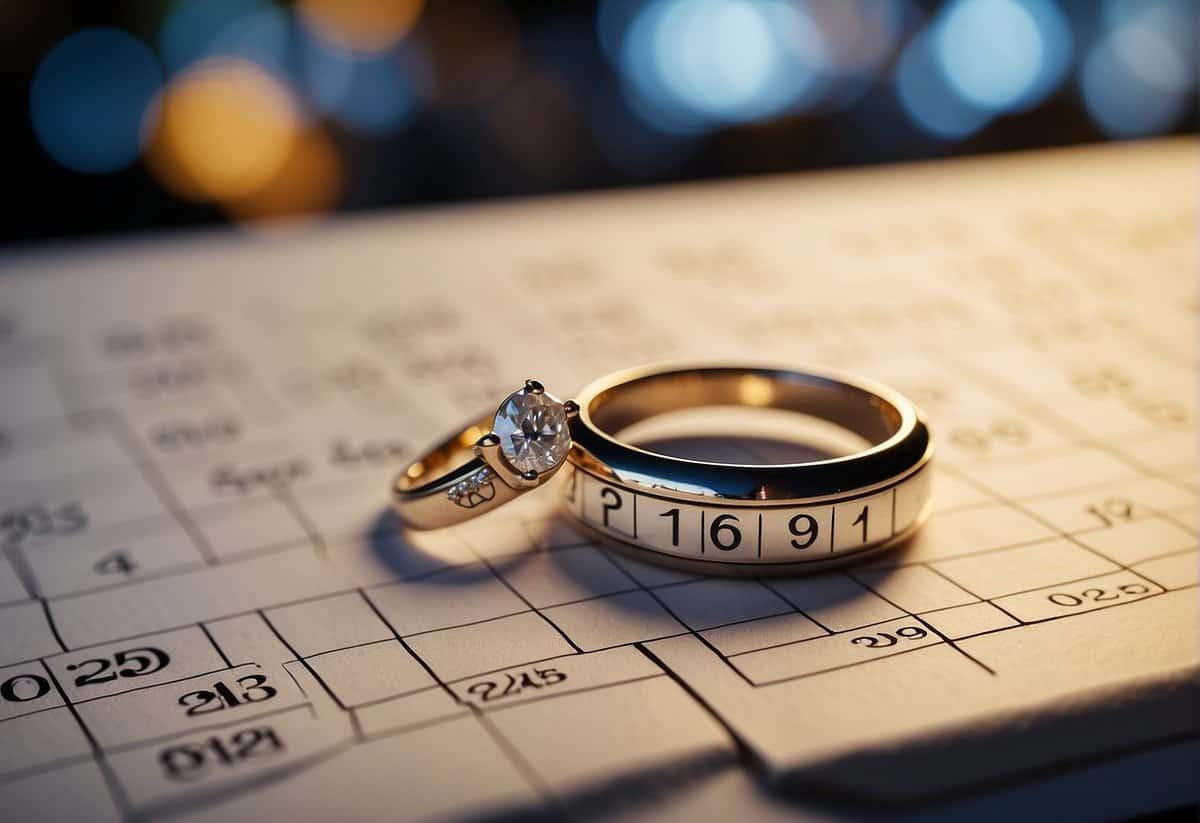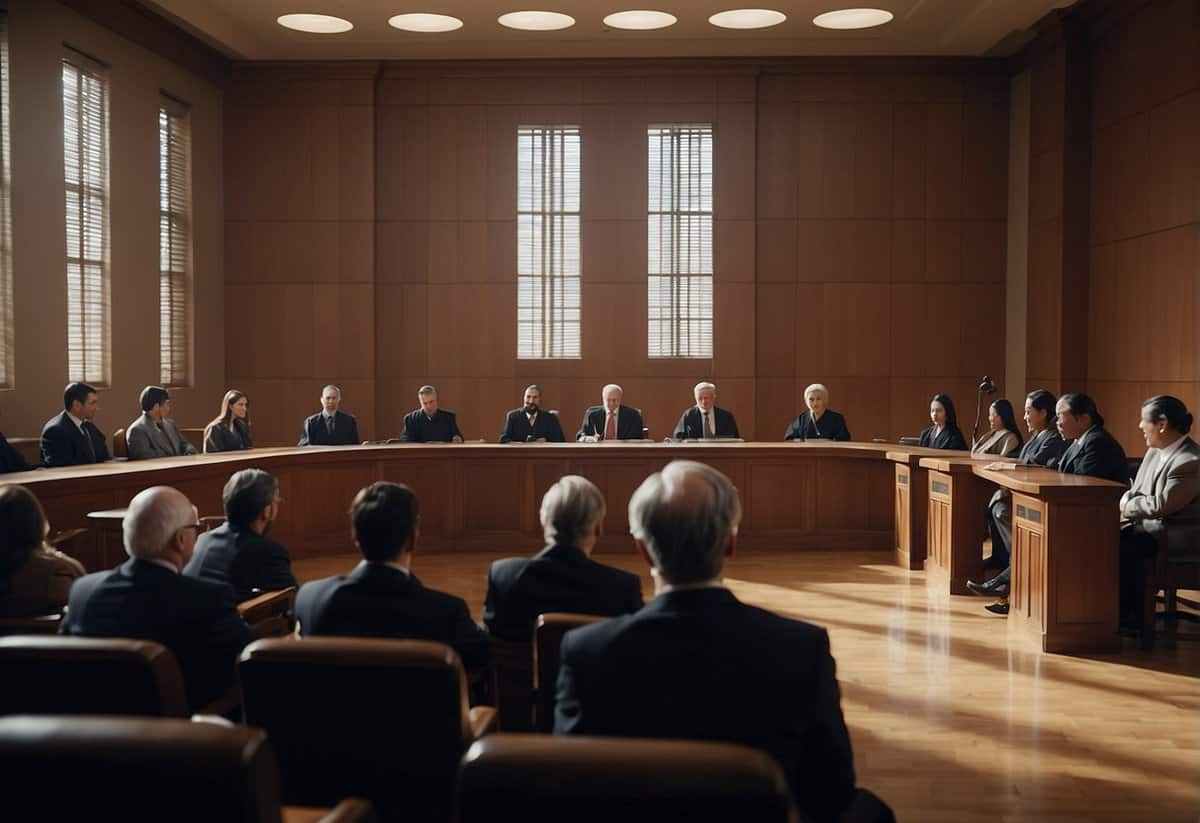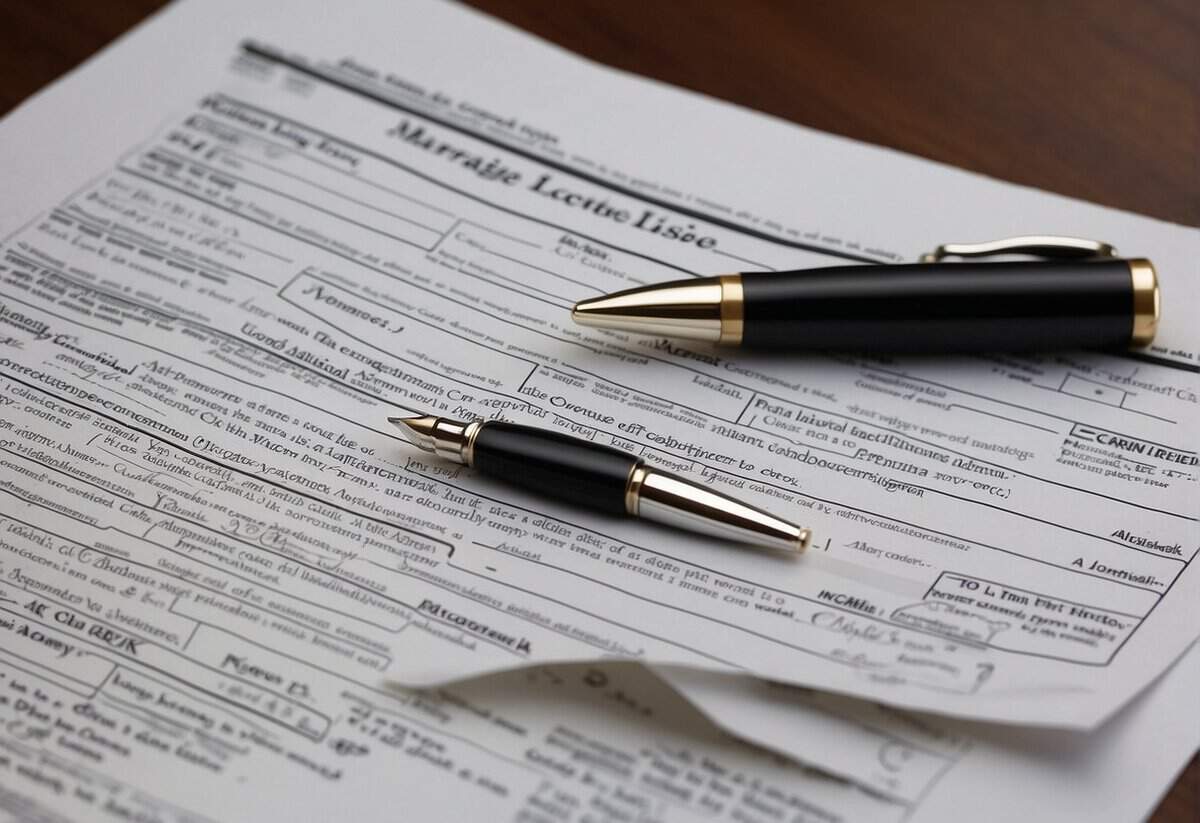What Age Is Considered Old to Get Married? Debunking the Myths
Determining the right age to get married is a question that can elicit a variety of responses, as the answer is influenced by personal choice, cultural norms, societal expectations, and legal stipulations. Traditionally, societies have held differing views on the age at which individuals are considered ready for marriage. In some cultures, marrying young is encouraged, while in others, it’s common to tie the knot at a more mature age. Additionally, love may not always be the primary motivator for marriage; factors such as economic stability, education, or family expectations can also play significant roles.

From a legal perspective, the marriage age varies across different regions and is determined by local authorities to avoid child marriages and establish a legal framework for marriage consent. In the United States, for example, the general marriage age is 18, but exceptions do exist with parental consent or judicial approval. It’s important for individuals to understand the legal requirements regarding marriage in their respective jurisdiction. On a personal level, marrying at a later age might allow for more time to focus on personal development, career advancement, and preparation for the responsibilities marriage entails.
Key Takeaways
- The right age to get married varies greatly depending on cultural norms, legal requirements, and personal circumstances.
- The legal age for marriage without parental consent generally starts at 18 in the U.S., with specific states having their own exceptions.
- Marrying at a mature age can afford individuals the opportunity to develop personally and professionally before committing to a partnership.
Cultural and Legal Perspectives on Marriage Age

When you think about marriage, you’ll find that your age at the altar is not just a personal decision; it’s deeply influenced by legal norms and cultural expectations that have evolved over time.
Historical Context
Historically, the concept of the ‘right’ age to get married has varied greatly. In ancient Rome, the legal age for marriage was 12 for girls and 14 for boys, though often, unions were arranged by families much earlier. English Common Law, which once set the tone for many Western legal systems, permitted girls to marry at 12 and boys at 14. These standards reflect historical contexts where life expectancies were shorter and marrying young was common.
Comparative Legal Standards
Today, marriage laws differ significantly across the world. In the United States, for example, the general marriage age is 18 years old, but exceptions exist. Some states have laws that lower the age with parental consent or judicial approval. Internationally, the age at which you can legally marry without consent varies, with many countries setting it at 18. Yet, there are places with a lower threshold, where child marriages are more prevalent. These differences highlight the complex tapestry of how law intersects with societal norms and practices.
Influence of Society and Maturity
Your perception of the right age to get married might be influenced by society and personal maturity. Nowadays, you might notice a shift in attitudes, with many believing that establishing a career and reaching emotional maturity should precede marriage. Considerations about the right age to marry often revolve around readiness for commitment, financial stability, and life experience. Arranged marriages also play a role in some cultures, where the societal norms might dictate a different timeline for marriage that doesn’t necessarily align with individual maturity. It’s important to recognize how societal expectations and personal growth contribute to your views on marriage age.
Legal Requirements for Marriage in the United States

Before you plan your special day, it’s important to know that marriage laws in the United States can vary significantly by state. Requirements such as age of consent, parental and judicial consent, and exceptions for special circumstances play a crucial role in determining who can legally marry.
Age of Consent by State
Each state has established a minimum age for marriage, typically placing the legal age for marriage at 18. However, exceptions are common, with states like Nebraska setting the age higher at 19, while others like Mississippi allow younger individuals to marry at 15 with consent. States like New York, Texas, and California generally follow the 18-year threshold, aligning with the national standard.
Below is a brief overview of the age of consent in some states:
- Nebraska: 19
- Mississippi: 21 or 15 with parental consent
- New York: 18 or 16 with parental and judicial consent
- Texas: 18 or 16 with parental consent
- California: 18, or under 18 with a court order
Parental and Judicial Consent
If you’re under the age of majority and hope to marry, you’ll typically need parental consent. This can often involve having both of your parents‘ signatures on the marriage license application. Additionally, judicial approval from a family court or a judge may be required. For instance, in states like Virginia and Florida, a judge’s approval is needed if you’re underage and do not have parental consent.
Exceptions and Special Circumstances
Various states provide exceptions for specific circumstances like pregnancy or instances where one party is a member of the armed forces. Emancipation of minors is another condition that may permit marriage without parental consent, for example, in New Jersey and Pennsylvania. Some states also mandate counseling before granting permission for an underage marriage to ensure that you understand the responsibilities involved. Delaware and Massachusetts offer examples where emancipation plays a role, potentially allowing for marriage without parental consent depending on the situation.
Impact of Marriage Age on Personal Development

Marriage age can significantly influence your journey through education and career advancement, as well as your emotional development and the maturity of your relationships.
Education and Career Considerations
When exploring the best time to get married, you must consider how marriage aligns with your educational and career goals. Entering into a marriage while pursuing higher education or at the onset of your career might demand a balance between these commitments. Late teens and early twenties are often pivotal years for academic and vocational development, and early marriage could potentially disrupt this progression. Conversely, waiting to marry until after you’ve reached certain educational or career milestones may provide stability and financial security beneficial for a marriage.
Emotional and Relationship Maturity
Developing a sense of self and achieving emotional maturity are crucial before considering marriage. A relationship expert might say the prime years for this personal growth tend to be from your mid-twenties to early thirties. Marrying too early, before these traits are established, can lead to challenges, including potential conflicts that might escalate to divorce. Marriage at a younger age can work well with the right level of maturity; however, caution is advised, especially for minors, as they’re yet to navigate many life experiences that contribute to maturity. Waiting until both partners have fostered a deeper understanding of themselves can create a more resilient foundation for marriage.
Preparation for Marriage

Making the decision to marry is a significant and personal milestone. It’s essential to ensure you are thoroughly prepared for the commitment that marriage entails. Proper preparation can include pre-marital education and legal understandings, which help you and your partner set the foundation for a healthy marriage.
Pre-Marital Education and Counseling
Engaging in pre-marital education might enhance your awareness of the responsibilities in a marriage. Programs often cover communication skills, financial planning, and conflict resolution techniques. Your state might have guidelines about premarital education; for example, some states offer a discount on your marriage certificate if you complete a course. Counseling, whether secular or religious, can also help address any pressure you might feel about getting married and ensures you are ready to make this commitment.
Understanding the Marriage Contract
Entering a marriage means you’re signing a marriage contract, which isn’t just a symbolic agreement but a legal one that can have numerous implications in your life. Here’s what you need to know:
- Legal Age: “What is the minimum age for marriage in your state?” Typically, legal age without judicial approval or parental consent is 18. However, it can vary; some places allow males and females as young as 16 or 17 to marry with certain conditions.
- Civil Union vs. Marriage: Understand the differences between a civil union and a marriage, as they can carry different legal rights and responsibilities.
- Waiting Period: Your state may impose a waiting period between obtaining a marriage license and the marriage ceremony.
- Child Marriage: Be aware of the restrictions to combat child marriage, ensuring that no partner is underage or entering the marriage without free consent.
By understanding the marriage contract, you can safeguard your own rights and enter into your marriage with clarity and confidence.
Frequently Asked Questions

When exploring the topic of marriage, certain ages are often considered more traditional or suitable than others. This section responds directly to some of the most common curiosities about age and matrimony.
What is considered a suitable age for a woman to tie the knot?
Traditionally, women have been encouraged to marry in their mid to late 20s. However, this varies widely based on cultural, social, and personal preferences.
What do studies suggest about the ideal age for marriage?
Studies suggest that the ideal age to get married is often between 25 and 32. This range allows for personal and professional development while still being early enough to enjoy a long-term relationship.
At what age should men ideally consider marriage?
Men are typically advised to consider marriage when they feel personally and financially stable. This age can vary, but many find their late 20s to early 30s to be a time when they are more prepared for commitment.
What are the advantages or disadvantages of marrying in your early twenties?
Marrying in your early twenties can provide a longer shared journey with your partner, but it may come with the challenge of navigating significant life changes together before fully understanding yourselves individually.
What is the culturally acceptable age for marriage in Islamic tradition?
In Islamic tradition, it’s acceptable to marry upon reaching physical and mental maturity. This can be as young as the late teens, but it’s vital to ensure that both individuals are ready for the responsibilities of marriage.
Does getting married after 30 affect family planning or baby-rearing?
Getting married after 30 may impact family planning, with considerations like fertility and energy levels. However, it often comes with the benefits of more life experience and financial stability.



